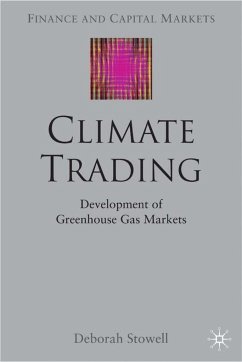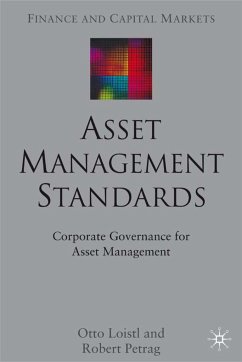
Climate Trading
Development of Greenhouse Gas Markets
Versandkostenfrei!
Versandfertig in 6-10 Tagen
113,99 €
inkl. MwSt.
Weitere Ausgaben:

PAYBACK Punkte
57 °P sammeln!
Climate Trading provides a comprehensive overview of the emerging greenhouse gas emissions trading markets. The book covers events in the UN climate negotiations and the development of the international emissions trading system under the Kyoto Protocol. The key focus of the book is the emerging domestic and international emissions trading schemes, project based trading programmes, and the developing greenhouse gas markets. As governments implement regulations to meet domestic and international greenhouse gas emission reduction targets, it is crucial for capital market practitioners and industr...
Climate Trading provides a comprehensive overview of the emerging greenhouse gas emissions trading markets. The book covers events in the UN climate negotiations and the development of the international emissions trading system under the Kyoto Protocol. The key focus of the book is the emerging domestic and international emissions trading schemes, project based trading programmes, and the developing greenhouse gas markets. As governments implement regulations to meet domestic and international greenhouse gas emission reduction targets, it is crucial for capital market practitioners and industry to understand risks and opportunities posed by these regulations. The book offers the reader insight into the climate change problem, the concept of emissions trading, design of emerging trading schemes and the practical functioning of the greenhouse gas markets.














